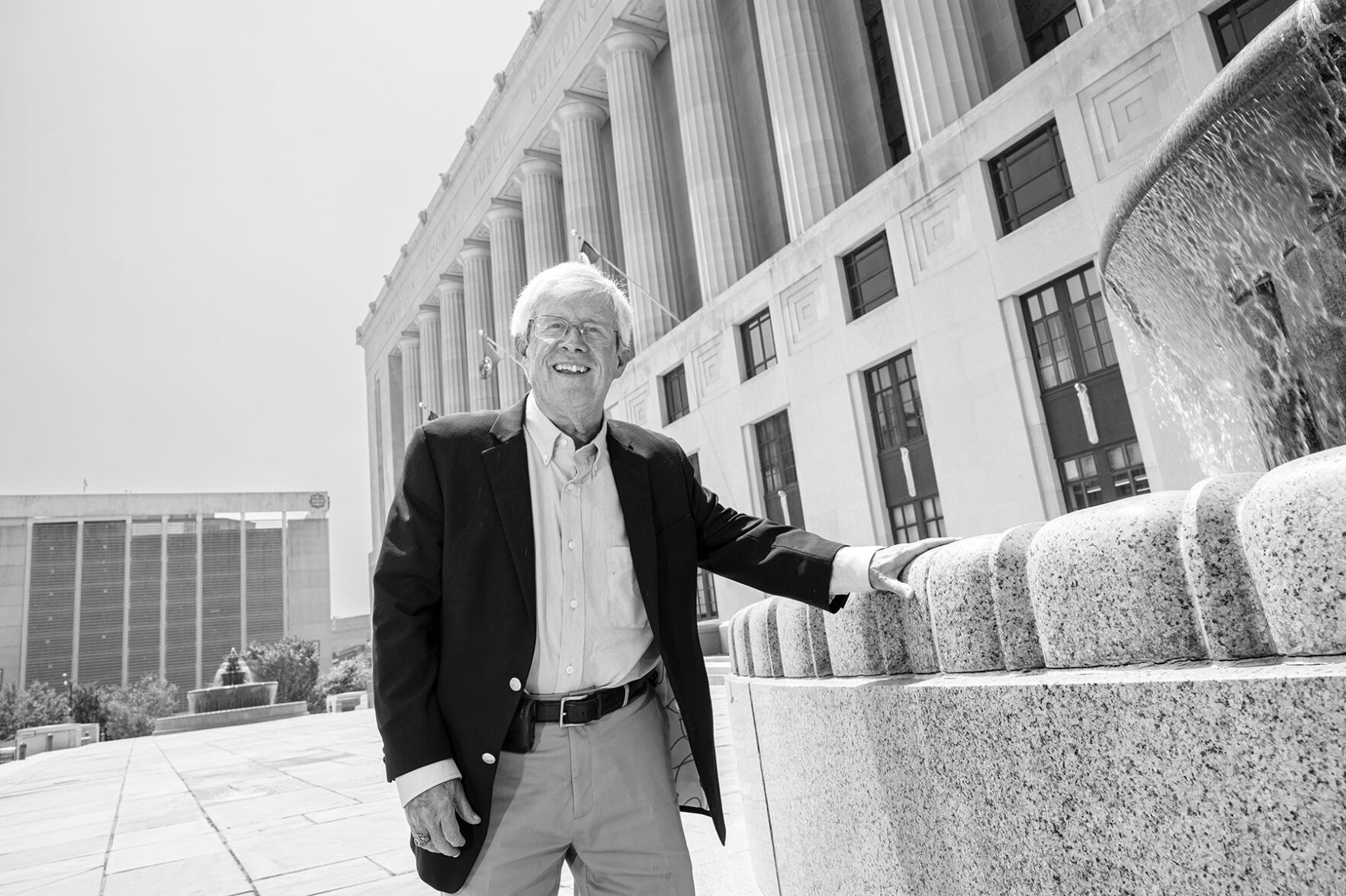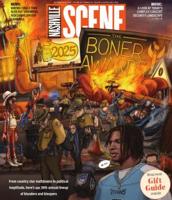It all started with some angry neighbors and a contentious zoning bill.
In 1968, Vanderbilt University had entered into an agreement with the Nashville Housing Authority — the precursor to the Metropolitan Development and Housing Agency — in which the department promised to condemn properties to facilitate Vanderbilt’s expansion if the university was unable to negotiate a price the homeowner would accept. By the early 1970s, the Metro Council was considering expansion of this so-called urban renewal area, putting additional parcels under threat of condemnation.
The neighborhood holdouts were furious. They formed a neighborhood association and approached PBS affiliate WDCN-TV with a proposal: Why not televise the public hearing on the proposed expansion? Perhaps the threat of sunshine could convince councilmembers to vote against the plan.
WDCN’s producers seized on the idea. “There was so much interest back then in the council,” recalls then-Councilmember and former Judge Bill Higgins. “I think it was real widely watched.” Vice Mayor David Scobey agreed to allow WDCN to televise the council meetings beginning on July 3, 1973 — the night of the public hearing — under one condition: They couldn’t leave when the hearing ended. They would have to cover the entire meeting, gavel to gavel.
Dead Air
Pat Nolan was fresh out of college, having graduated from Vanderbilt in May 1973. He was looking for a job. By chance, his next-door neighbor saw a notice on the bulletin board of the Green Hills Library. WPLN-FM, the local NPR affiliate, had received a grant from the Corporation for Public Broadcasting. They were hiring. “I barely knew what WPLN was,” says Nolan. But he’d worked for Vanderbilt’s station WRVU during college.
It wasn’t the path his mother envisioned for her son, the first in his family to graduate from college. “My mother wanted me to go down to the banks, the insurance company, the telephone company, and apply to get into their training program for executives,” Nolan tells the Scene. She told Nolan that if he worked hard, he could retire in 40 years “with a gold watch and a pension.” Nolan wasn’t swayed. He took the job at WPLN.
Not long after he started, Nolan received a call from WDCN producer Mike Kroger, who asked if Nolan would be willing to anchor WDCN’s first live broadcast of the Metro Council. Kroger would pay $25. “If I thought I was doing something unique,” says Nolan, chuckling, “I would’ve asked for more money.”
It was Nolan’s first television job. He’d never even been to a council meeting before. “I guess, thinking back on it, it was like getting thrown in the deep end of the pool and being told to swim.”
After a lengthy public hearing amid a standing-room-only crowd, the council voted to defer Vanderbilt’s proposal to a later date. Then Vice Mayor Scobey abruptly called a recess.
Nolan would come to expect this and devise ways to fill the time for the television audience. “They used to do this,” Nolan recalls. “They’d do something important, and they’d take a recess to go out in the hall and talk about it.” That first night, though, Nolan was unprepared. “So there I was: dead air.” He scrambled to flag down Vanderbilt’s lawyer for an impromptu interview.
After a time, the council returned to the chamber and resumed business as usual. The meeting, which began at 7:30 p.m., lasted for five-and-a-half hours. When he left the chambers in the early hours of July 4, Nolan made a beeline for the International House of Pancakes.
Democracy in Action
Nolan quickly became a fixture in the Davidson County Courthouse, covering the council for WPLN, WDCN, and NewsChannel 5. For Nolan, “The council is democracy in action: the good, the bad, the ugly and the, ‘Oh my God, is that really happening on live television?’”
One such “oh my God” moment came during a vote to censure Councilmember Jack Clariday. Clariday had been indicted and convicted of accepting a $2,500 bribe in a quid pro quo uncovered by a young investigative reporter by the name of Albert Gore Jr. Clariday hadn’t yet resigned from his post, though he was facing a prison sentence. Nolan was crouched in front of Clariday, holding a microphone to ensure he’d have solid audio coverage of the proceedings.
Called on by the vice mayor, Clariday slowly stood, faced the dais, and said, “Mr. Chairman, now I know how Jesus felt when they nailed him to the cross.” It was all Nolan could do to stop himself from laughing in Clariday’s face. “I knew we had the sound-bite of the night,” Nolan says. “It wasn’t going to get any better than that.”
“Metro, Meet Technology”
These days, you can catch the council meetings streaming on the Metro Nashville Network. In 2017, under the leadership of then-Vice Mayor David Briley, that coverage was expanded to include committee meetings, where much of the deliberation on legislation takes place.
In her latest recap, @startleseasily reports on the longest agenda in the Metro Council's 60-year history
Briley doesn’t recall any particular impetus for expanding coverage — just a general feeling that “the time was right.” Councilmember At-Large Bob Mendes remembers District 24 Councilmember Kathleen Murphy being the voice of the push for greater coverage. Murphy doesn’t remember the specifics, but thinks it was a group effort. “I think when we got elected,” Murphy says, “we were a lot younger than previous councils, and we were like, ‘Metro, meet technology.’” Then-Council Director Mike Jameson, renowned for his extensive memory, doesn’t recall specifics either. “Everyone just immediately acknowledged that this was the thing to do,” he says.
“Maybe it’s good that none of us really found this eventful enough to remember,” says Murphy, who sees the collective amnesia as indicative of a general acceptance of public scrutiny.
Murphy, who is term-limited, challenges the next council to build on this work to find “the next iteration of transparency in government,” perhaps by expanding coverage of Metro’s various boards and commissions. Bill Higgins agrees.
“It’s good to have somebody looking over your shoulder,” he says.
Nicole Williams is a fervent observer of the Metro government’s comings and goings. On the Scene’s news and politics blog Pith in the Wind, Williams writes the “On First Reading” column, in which she recaps the bimonthly Metro Council meetings and provides her analysis.






